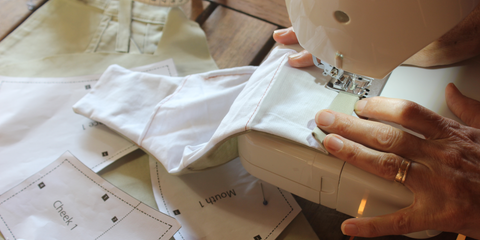What’s the issue with Black Friday?
With the autumn months all ahead of us, it’s almost that time of the year again. The time where brands and businesses bombard our mailboxes with promotional emails and our social media feeds are filled with one thing: Black Friday. The biggest shopping event of the year is also closely followed by another: Cyber Monday. But this unconscious shopping frenzy is not good for the planet, people and animals and more and more people are starting to question and boycott these shopping events every year.
Even when brands and organisations put a “sustainable” spin on Black Friday, pushing “eco-friendly” deals, something feels off. There’s an increasing amount of greenwashing around these sales, but the overconsumption encouraged during this time can never truly be sustainable.
The fashion industry and especially fast fashion, is already polluting and exploitative as it is. Black Friday makes it even worse.
The environmental impact
More global consumer spending means more products are being manufactured and shipped worldwide, so it’s no surprise that Black Friday’s carbon footprint is massive. According to the Dirty Delivery report, online shopping for Black Friday 2020 in the UK alone emitted 429,000 tonnes of greenhouse gas emissions, the equivalent to the weight of 61,308 elephants. The European Parliament estimated that this number could rise as high as 17% by 2050.
Because so many transactions are made, more emissions are created, more waste is generated and more trucks are dispatched to meet this demand. Black Friday promotes overconsumption, pushing consumerism to its extremes by telling us we need more unnecessary, unwanted, cheap goods made from poor-quality, unsustainable materials. Most times, we end up not even using those items; in fact, one study had suggested that up to 80% of our Black Friday purchases are thrown away after just one or zero uses.

The social impact
Black Friday also affects the workers who produce the goods we’re buying.
Production at a large scale often comes with outsourcing labour to nations where brands get away with paying pennies, depriving workers of access to a living wage and safe working conditions, and trapping them in an inhumane cycle of poverty.
But this cycle of poverty doesn’t just stop at the manufacturing level. The workers that package, ship, and deliver the products are often under a lot of stress during this time of year, working long hours, from 12-16 each day at Amazon for example, to meet deadlines. Black Friday also impacts us as consumers, playing on the idea that in this capitalist world, our value is based on what we own and that by buying more things, we’ll feel better, more appreciated, loved and respected.

At Scarlet Destiny, we want to avoid the hype and embrace ethical consumerism. When this time of the year comes, we want to think with the 5 Rs of sustainable fashion in mind: Reduce, Rewear, Recycle, Repair, and Resell. This year, we won’t be chasing any Black Friday deals, but instead want to inspire you to look at a few brands and their anti Black Friday actions.
Spanish plant-based shoemakers brand, Flamingos’ Life, faces Black Friday overconsumption by closing its online store on Black Friday. In a globalised world, the brand is joining forces with other ethical brands committed to the salvation of the planet to create a bigger impact and spread the message around the world.
For the last three years, the brand Citizen Wolf has been running ‘Black Fridye’, an annual event aiming to end disposable fashion by hijacking the Black Friday sales to make it simple to love your clothes longer by dyeing them black.
Last year, MUD Jeans shut down its webshop on Black Friday and only sold their vintage jeans from their rental service, where you can lease a pair of jeans for up to a year.
Tagma Design as well as many other ethical brands, instead of running a sale weekend, have been active as usual and donating a percentage of what’s sold during that weekend to charities and organisations that plant trees in areas suffering from deforestation.

These actions from brands and businesses are changes we can all make to help push the fashion industry to become more sustainable by choosing our purchases wisely and supporting small businesses trying to be part of the change so badly needed in the industry.. If we want real change to happen, we need legislation by governments to hold brands accountable for their product development in a more sustainable way, instead of causing harm to our planet, people, and animals.
In addition to buying less and buying better, we can all also participate in social movements, ask for systemic change and justice, and challenge our capitalistic system and cultural habits.
[Information sourced on goodonyou.eco and fashionunited.uk
Featured image and all images sourced on canva.com]

